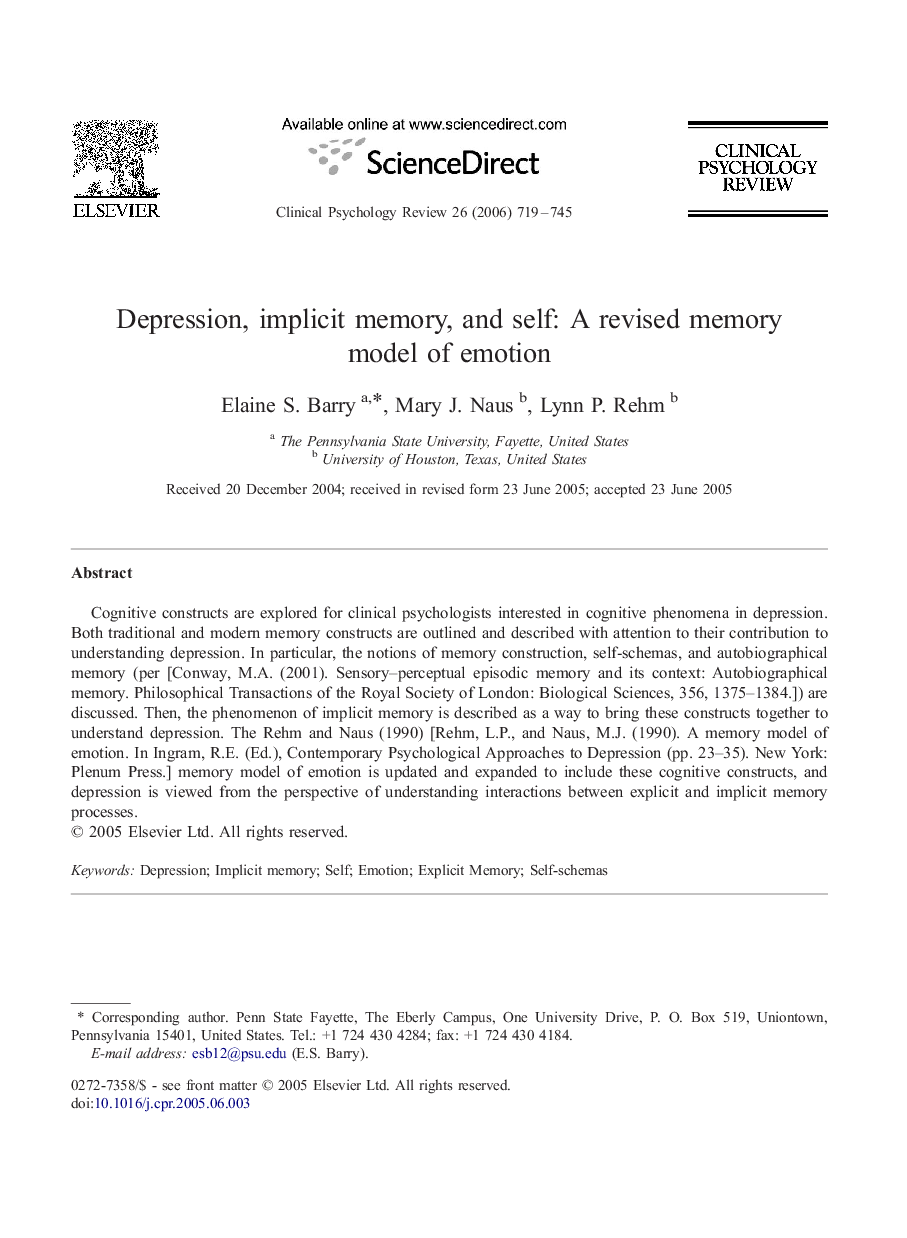| Article ID | Journal | Published Year | Pages | File Type |
|---|---|---|---|---|
| 904093 | Clinical Psychology Review | 2006 | 27 Pages |
Cognitive constructs are explored for clinical psychologists interested in cognitive phenomena in depression. Both traditional and modern memory constructs are outlined and described with attention to their contribution to understanding depression. In particular, the notions of memory construction, self-schemas, and autobiographical memory (per [Conway, M.A. (2001). Sensory–perceptual episodic memory and its context: Autobiographical memory. Philosophical Transactions of the Royal Society of London: Biological Sciences, 356, 1375–1384.]) are discussed. Then, the phenomenon of implicit memory is described as a way to bring these constructs together to understand depression. The Rehm and Naus (1990) [Rehm, L.P., and Naus, M.J. (1990). A memory model of emotion. In Ingram, R.E. (Ed.), Contemporary Psychological Approaches to Depression (pp. 23–35). New York: Plenum Press.] memory model of emotion is updated and expanded to include these cognitive constructs, and depression is viewed from the perspective of understanding interactions between explicit and implicit memory processes.
